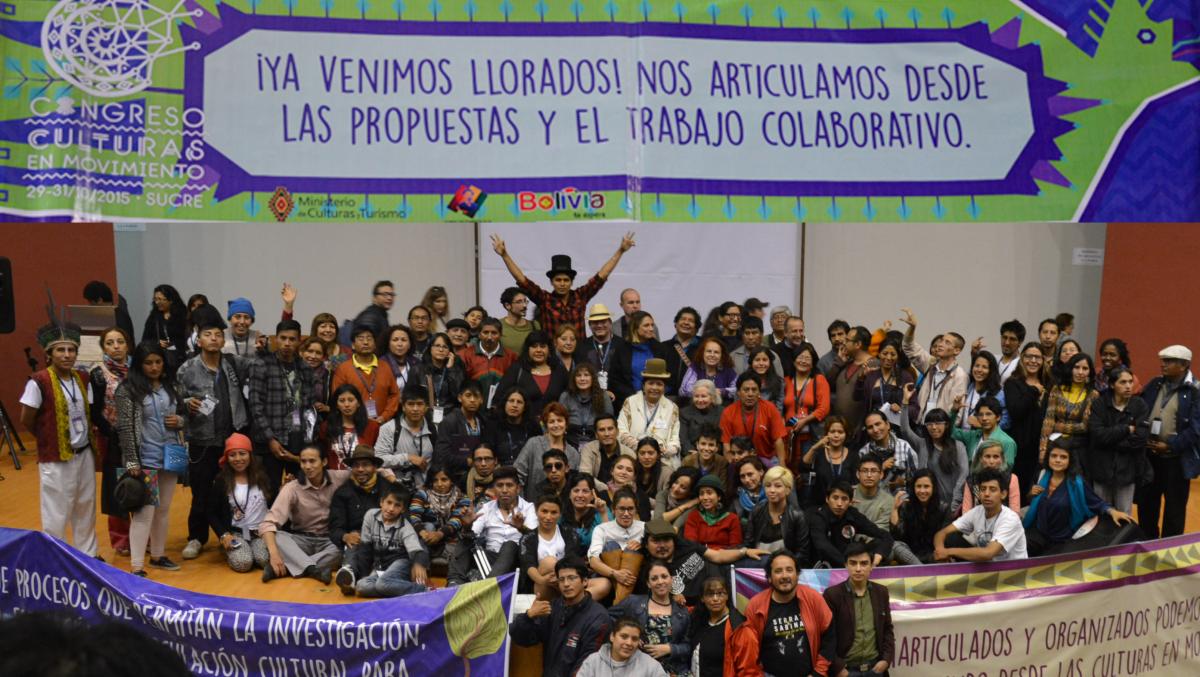Historic is the only word to describe the Cultura en Movimiento (Cultures in Motion) congress, the first meeting of the actors who give life to the arts and culture in Bolivia. More than 300 people, including artists, cultural agents, academics, activists and authorities in the area participated in the event which took place in October in the city of Sucre.
Organized by Telartes, the Congress was supported by Hivos, the Ministry of Culture & Tourism and San Francisco Xavier University.
Event organizers took on the challenge of bringing together different cultural groups working in the country to create opportunities for strengthening and coordinating the development of cultural areas in Bolivia. During the three-day conference, reflection workshops were organized in which participants held discussions based on their daily experiences to propose and set up work agendas. It was from these workshops that public policy proposals for the sector were formulated.
One of the issues that engendered the most debate was the Cultures of Bolivia bill. At the end, a document was developed with proposed amendments to the bill, generated by the artistic and cultural sector,
The congress was attended by important figures from the world of Latin American culture, such as Ivana Bentes, Secretary of Citizenship and Cultural Diversity from the Brazilian Ministry of Culture.
The Cultures in Motion Congress had six workshops:
• Training and Research
• Cultural Economy: Fiesta, indicators and cultural industries
• Development, production and sustainability of cultural expressions
• The logics of cultural movement and international relations
• Cultural legislation
• Communication free and digital culture
Those interested in being able to read, discuss and contribute to the conclusions of each workshop can do so, in Spanish, by clicking on the link below:
telartes.comunicacionabierta.net
For Hivos, art is a powerful tool for social transformation. This is why we support initiatives that go beyond ‘art for art’s sake’ and which seek to challenge society and its reality.
LEE LA NOTA EN ESPAÑOL




